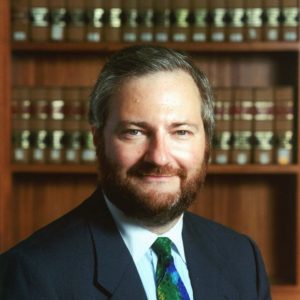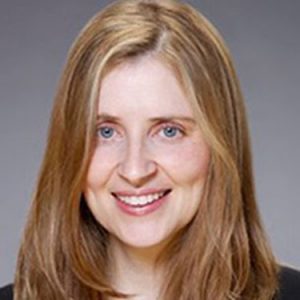CURRENT MONTH (April 2021)
Legal Opinions and Ethics
COVID-19 and the “Invisible” Lawyer
By Keith R. Fisher
Since the outbreak of the pandemic, lawyers have sequestered themselves and their loved ones in more secure locations to reduce the risk of contracting COVID-19, but they have continued to practice law during this period. In many cases, these relocations are to another jurisdiction (the “host jurisdiction”) where the lawyer is not licensed to practice; examples could include a summer home or a mountain cabin in a State other than the situs of the lawyer’s office. Thus a Boston lawyer might be practicing from her place in New Hampshire, Maine, or Vermont, or a Chicago lawyer might be practicing from his place in Wisconsin, Indiana, or Michigan. The ethics issue raised is whether this constitutes the unauthorized practice of law (“UPL”) in violation of Model Rule 5.5?
UPL is a notoriously tricky area, as a 2016 decision of the Minnesota Supreme Court upholding the discipline of a Colorado lawyer illustrates. That case did not even involve relocation or sequestration but merely e-mail. An experienced Colorado lawyer contacted a Minnesota lawyer via email to help his Minnesota in-laws resolve a Minnesota debt collection dispute, which he hoped to settle out of court. The e-mail indicated that if that effort was not successful, the Colorado lawyer intended to seek the help of local counsel. Opposing counsel in the matter, however, referred the Colorado lawyer to Minnesota disciplinary authorities. The Colorado lawyer was found to have engaged in UPL by e-mailing people in Minnesota, even though he (i) did not physically appear in Minnesota when dealing with opposing counsel, (ii) did not attempt to solicit Minnesota clients, (iii) did not hold himself out as practicing in Minnesota, and (iv) did not assist his in-laws with a legal issue beyond his licensed practice area.
Nevertheless, the prevailing view – one endorsed in December 2020 by ABA Formal Opinion 495 – is that, subject to one major caveat (described below), practicing in another jurisdiction while sequestered during the pandemic does not constitute UPL if the lawyer is, in effect, “invisible” in the host jurisdiction. “Invisible” in this context means not a shadowy, H.G. Wells character with an ace bandage wrapped around the head but someone invisible as a lawyer to the jurisdiction in which the lawyer is physically located. That kind of invisibility means the lawyer does not by word, document, or deed establish a public, practicing-lawyer profile in the host state, i.e., does not hold himself out as practicing in that host jurisdiction or establish an office or other systematic and continuous presence, in the host jurisdiction for the practice of law. See Model Rule 5.5(b).
Another portion of the Model Rule may also come into play, albeit with some uncertainty. Formal Op. 495 mentions Model Rule 5.5(c)(4), which permits a lawyer to provide temporary legal services in a host jurisdiction that arise out of or reasonably relate to the lawyer’s practice in the home jurisdiction. Compulsory (or even merely prudent) office closures occasioned by the pandemic have created this “temporary” workplace situation for many lawyers, but the problem is that the Model Rules do not define “temporary.” Formal Op. 495 could have provided more guidance to the Bar by filling this gap and defining “temporary” in the context of pandemics and other public emergencies, but the opinion makes no effort to do so. Likewise, Formal Op. 495 could have disavowed a contrary position taken as recently as 2018 in Formal Opinion 482, to the effect that a lawyer who relocates temporarily to another jurisdiction in which he is not licensed after a disaster cannot rely on Model Rule 5.5(c).
The most significant guidance offered in Formal Op. 495 is that (A) the lawyer is not engaged in UPL if he is not practicing (or representing that he can practice) the law of the host jurisdiction, and (B) such an office would not be “established” within the meaning of the rule “if the lawyer does not hold out to the public an address in the local jurisdiction as an office and a local jurisdiction address does not appear on letterhead, business cards, websites, or other indicia of a lawyer’s presence.”
Formal Op. 495 cites to the same effect state ethics opinions from Maine and Utah but fails to mention other recent and highly significant developments. In March 2020 an opinion of the District of Columbia Court of Appeals Committee on the Unauthorized Practice of Law allowed lawyers living in D.C. but not licensed there and normally practicing from an office elsewhere (e.g., Maryland or Virginia) to telecommute during the pandemic (interpreting D.C. Ct. App. R. 49). Similarly, an August 2020 advisory opinion of the Florida Bar’s Standing Committee on the Unauthorized Practice of Law concluded that a New Jersey lawyer could live and practice law in Florida engaging in UPL because his presence for purposes of practicing law was in New Jersey and would in no way involve Florida clients, cases, parties, or courts. Formal Op. 495 also does not acknowledge that even before COVID-19, a few states — Minnesota, North Carolina, Arizona, and New Hampshire — amended their versions of Rule 5.5(d) to allow lawyers to practice there if they’re licensed elsewhere so long as they disclose that they’re not licensed to practice in that state.
More recently (March 2021), a joint ethics opinion of the Pennsylvania Bar Association and the Philadelphia Bar Association, relying on Formal Op. 495, concluded that a Pennsylvania lawyer may work remotely from another jurisdiction, even if not licensed there, if the work is limited to practicing Pennsylvania law for Pennsylvania clients.
The caveat singled out in Formal Op. 495 is that if the host jurisdiction affirmatively prohibits (by statute, rule, case law, or ethics opinion) such invisible law practice, then Model Rule 5.5(a) likewise prohibits it. Formal Op. 495 does not, however, identify any such jurisdiction. Mindful that land mines (like the Minnesota decision mentioned above) litter the UPL landscape, any lawyer aspiring to “invisible” law practice should be scrupulous about verifying this point in the particular host jurisdiction that is the lawyer’s haven.




